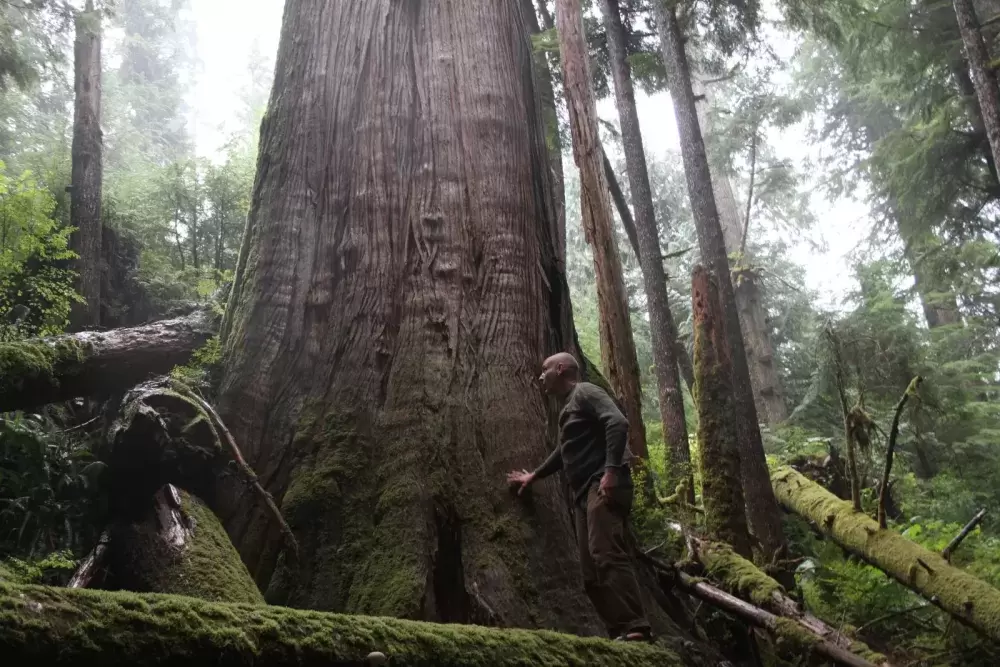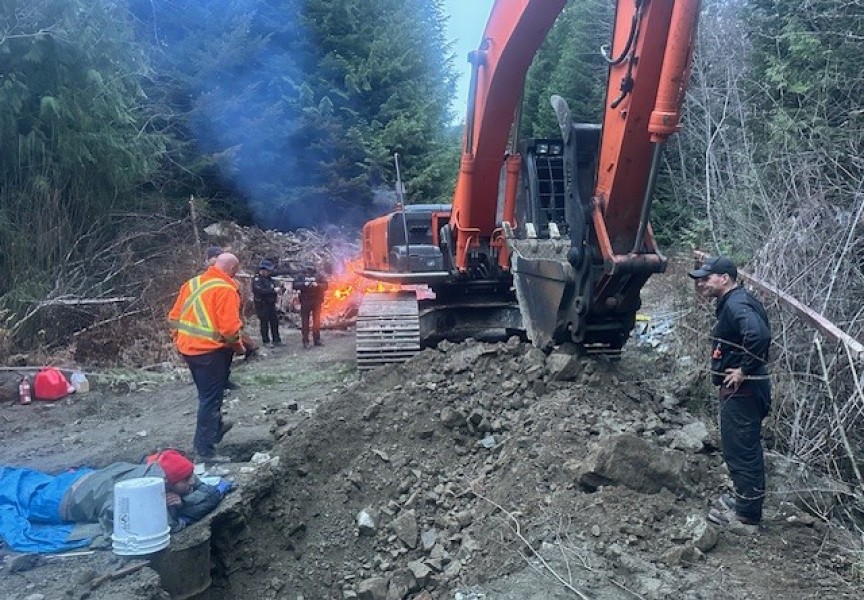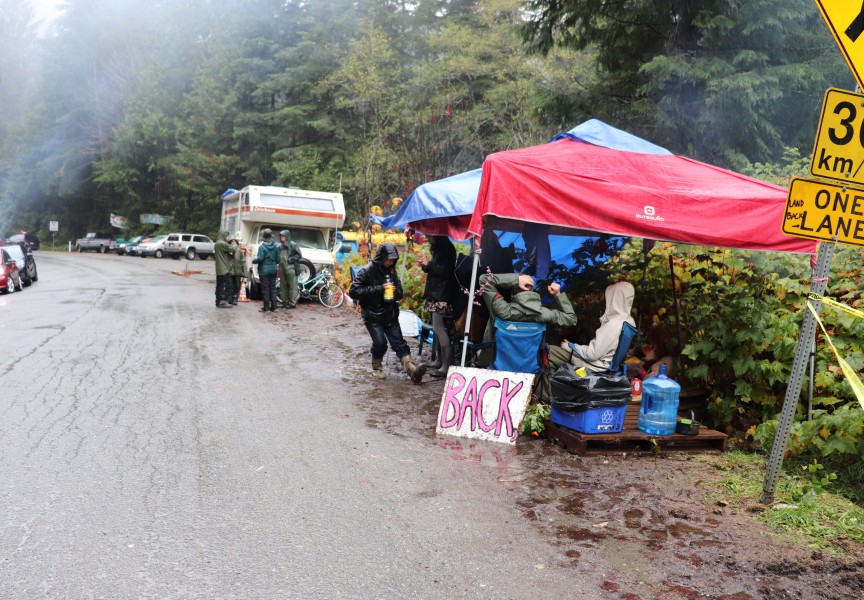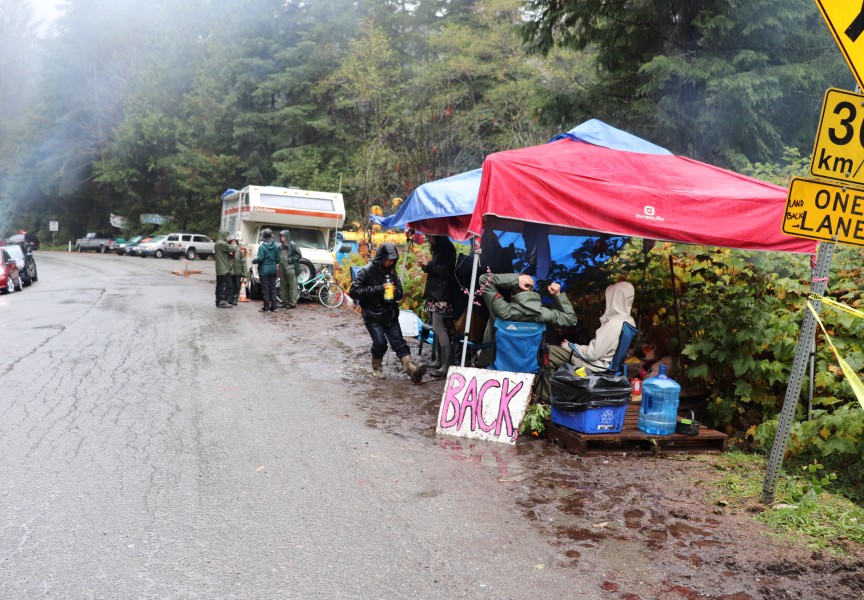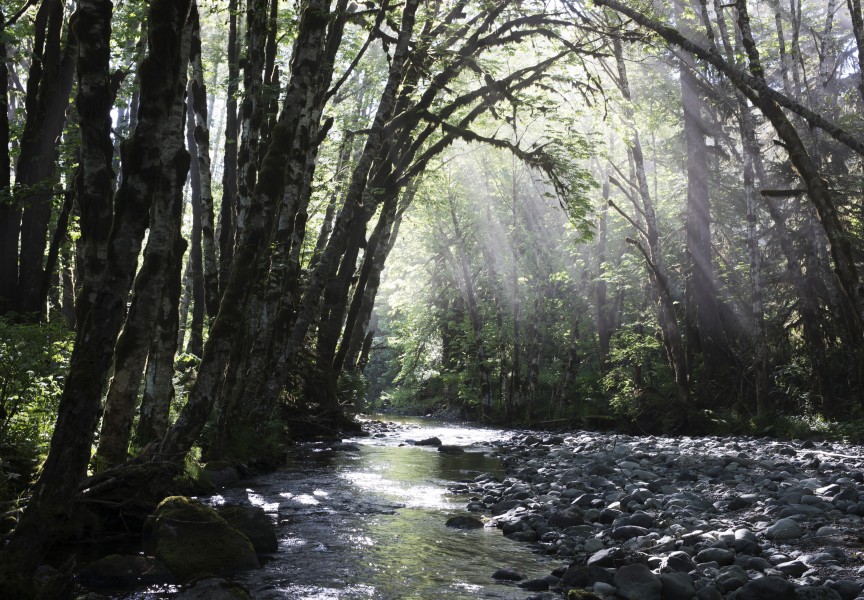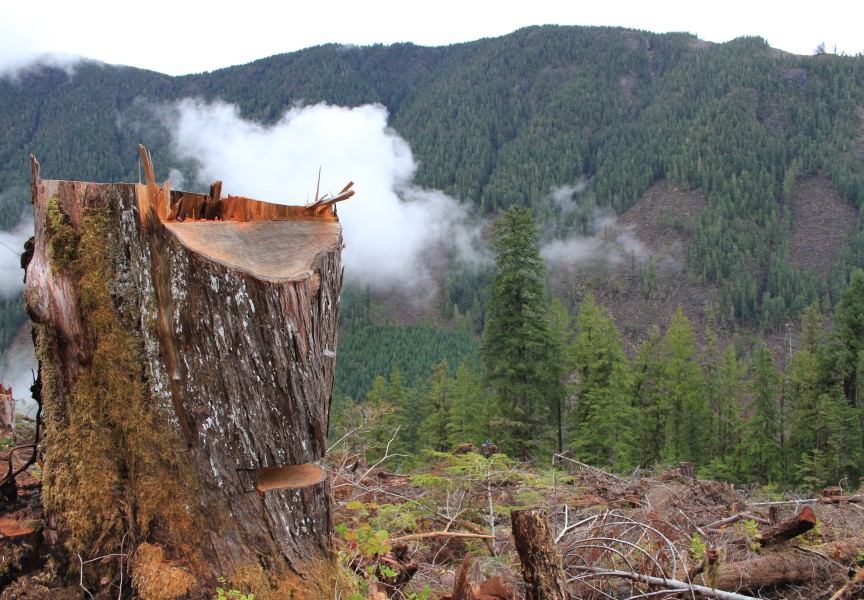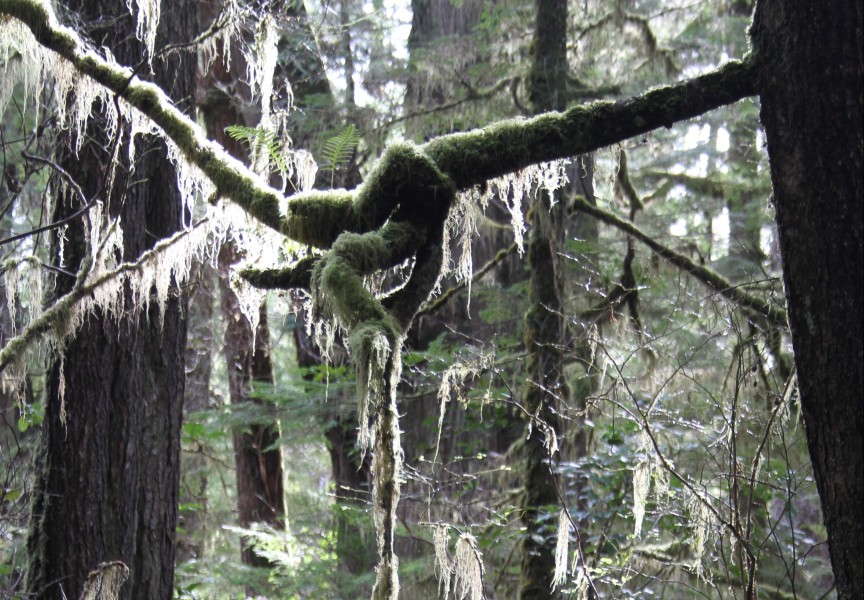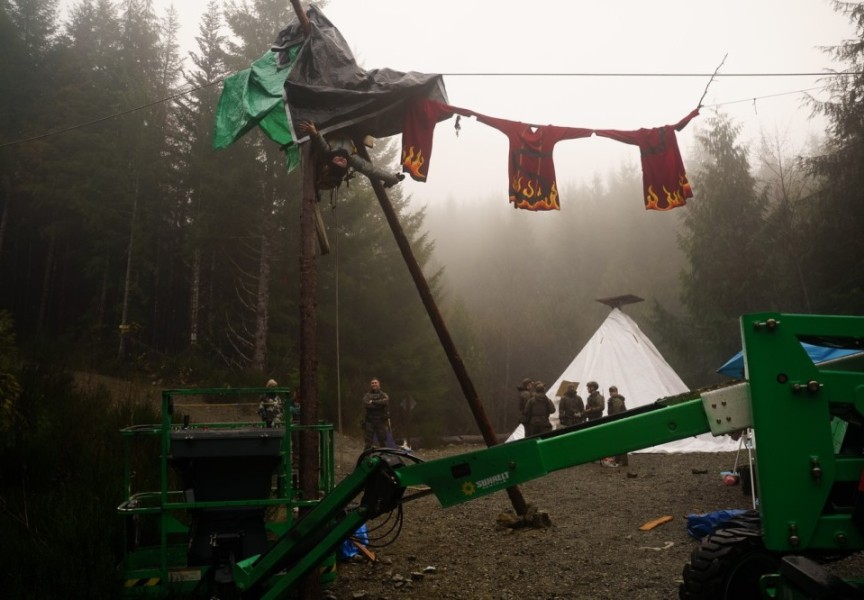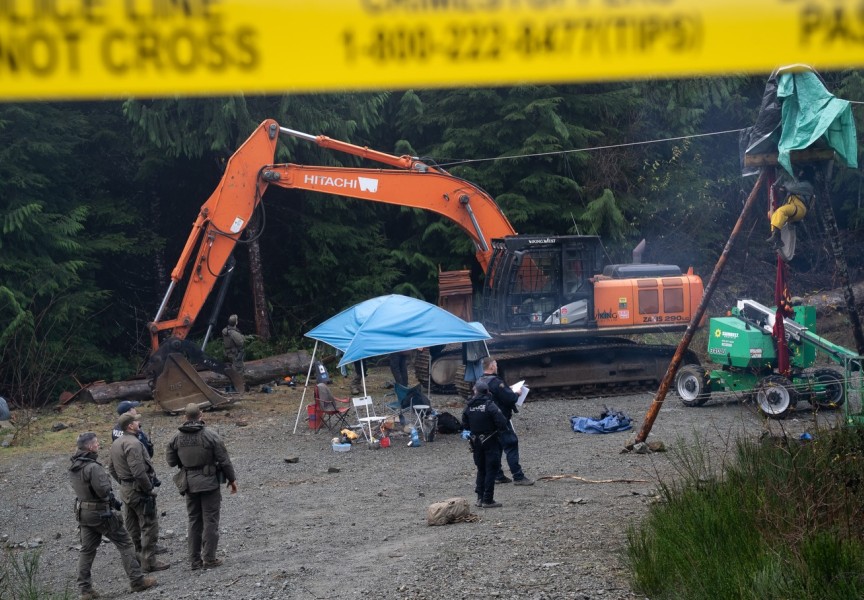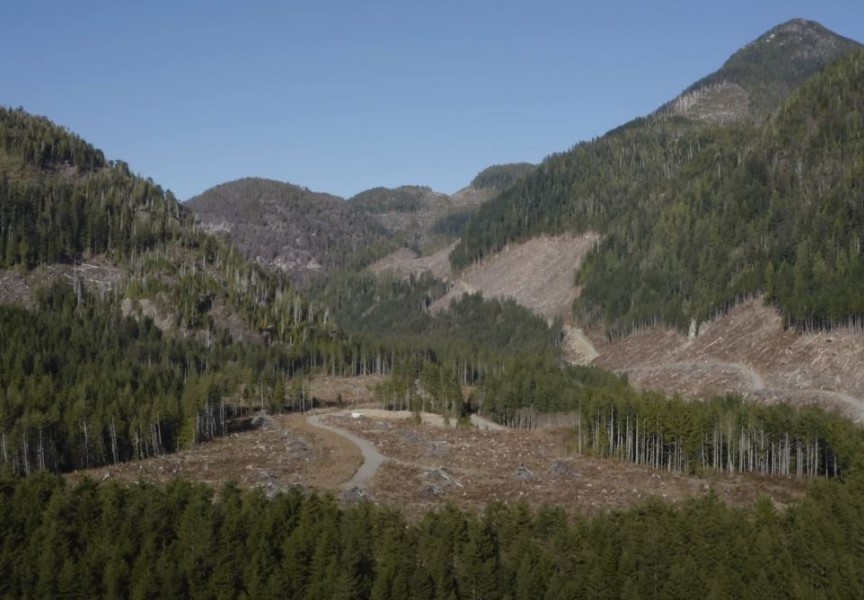Blockades remain to prevent logging in an untouched valley near Port Renfrew, despite a court injunction to have them removed and a statement from the Pacheedaht criticizing the “unsolicited” involvement in the First Nation’s territory.
On April 1 an order came from the B.C. Supreme Court to have several blockades around the Fairy Creek watershed removed. For the last eight months the encampments have been held by the Rainforest Flying Squad, a loosely affiliated collection of old growth activists, to prevent road building into the section of Crown land that is considered one of the few old growth forests untouched by industrial logging. No arrests have been made since the court order was issued, and volunteers continue to man the posts, said Bobby Arbess, a defendant in the injunction against the blockades.
Arbess pointed to direction given by Bill Jones, a Pacheedaht elder who has supported the blockades for protecting the traditional importance of the old growth forest.
“They’re all up. Nobody has left because Bill asked people to hold their ground,” said Arbess. “We’re at this critical point where something has to change with the way forests are being managed.”
But on April 12 the movement was dealt a blow with a statement from the Pacheedaht First Nation, which had previously remained silent on the conflict since last August. In a letter signed by Hereditary Chief Frank Queesto Jones and Chief Councillor Jeff Jones, the First Nation states that decisions over forestry resources need to be made by the Pacheedaht, adding that the First Nation has always harvested old growth trees for various reasons, including economic purposes.
“Our constitutional right to make decisions about forestry resources in our territory, as a governing authority in our territory, must be respected,” reads the statement. “We do not welcome or support unsolicited involvement or interference by others in our territory, including third-party activism.”
“I think that’s an appropriate request by the people who have rights and title,” added Premier John Horgan during a press conference the day after the Pacheedaht’s statement was issued. “If there are those who claim that they are standing up for Indigenous rights, they’re certainly not doing that. They’re disregarding the requests of the not just the elected, but hereditary leadership as well.”
The statement references the “increased polarization over forestry resources” as the Fairy Creek conflict has continued, pointing to tensions within the Pacheedaht nation over the future of the old growth valley. Besides Bill Jones, Roxy Jones spoke against logging in the area at a March 4 demonstration in Victoria. An elected councillor, Roxy Jones opted to speak independently as a Pacheedaht citizen during the rally.
The Fairy Creek valley is within Tree Farm Licence 46, with tenure held by the Teal Jones Group. In court documents the shake and shingle producer argued that $10 million in business is at stake, particularly in acquiring the rare cedar available in the valley that would be used to build custom-made guitars. The forestry company’s submission states that the Pacheedaht gave consent to harvesting in the Fairy Creek valley.
Arbess admits that the recent statement from the Pacheedaht First Nation has affected moral at the blockades.
“I’m finding it really quite awkward that we are being put in the position of taking sides and exposing the internal rifts within that community in the public spotlight. I feel personally really uncomfortable with that,” he said. “What we’re dealing with here is essentially 150 years of colonialism that have resulted in First Nations being essentially bound and gagged by revenue sharing agreements with government and industry that has put them between a rock and a hard place.”
For the time being, the Pacheedaht has received commitments from the tenure holder and the province to suspend forestry activities in specific areas as a forest stewardship plan is developed by the community, led by hereditary and elected leaders.
“This will result in the implementation of an immediate interim conservation measure,” reads the First Nation’s statement. “Our stewardship plan will include the identification of special sites, traditional use areas and places where conservation measures will be in place. Given our governance rights, this stewardship plan must guide forestry activities in our territory.”
In recent years, the 280-member First Nation has claimed a growing stake in its territory’s resources. The nation has 50 per cent ownership over Pacheedaht Anderson Timber Holdings, a company that holds forestry licences in TFL 61 and owns a sawmill in Port Renfrew. Through a forest revenue sharing agreement with the province, the First Nation receives a percentage of the stumpage fees paid by all tenure holders in its territory.
This regional influence is expected to increase, as the Pacheedaht are in the final stage of treaty negotiations with the provincial government and Ottawa, which would enshrine the nation’s territorial rights, obligations and interests in Canadian law.

